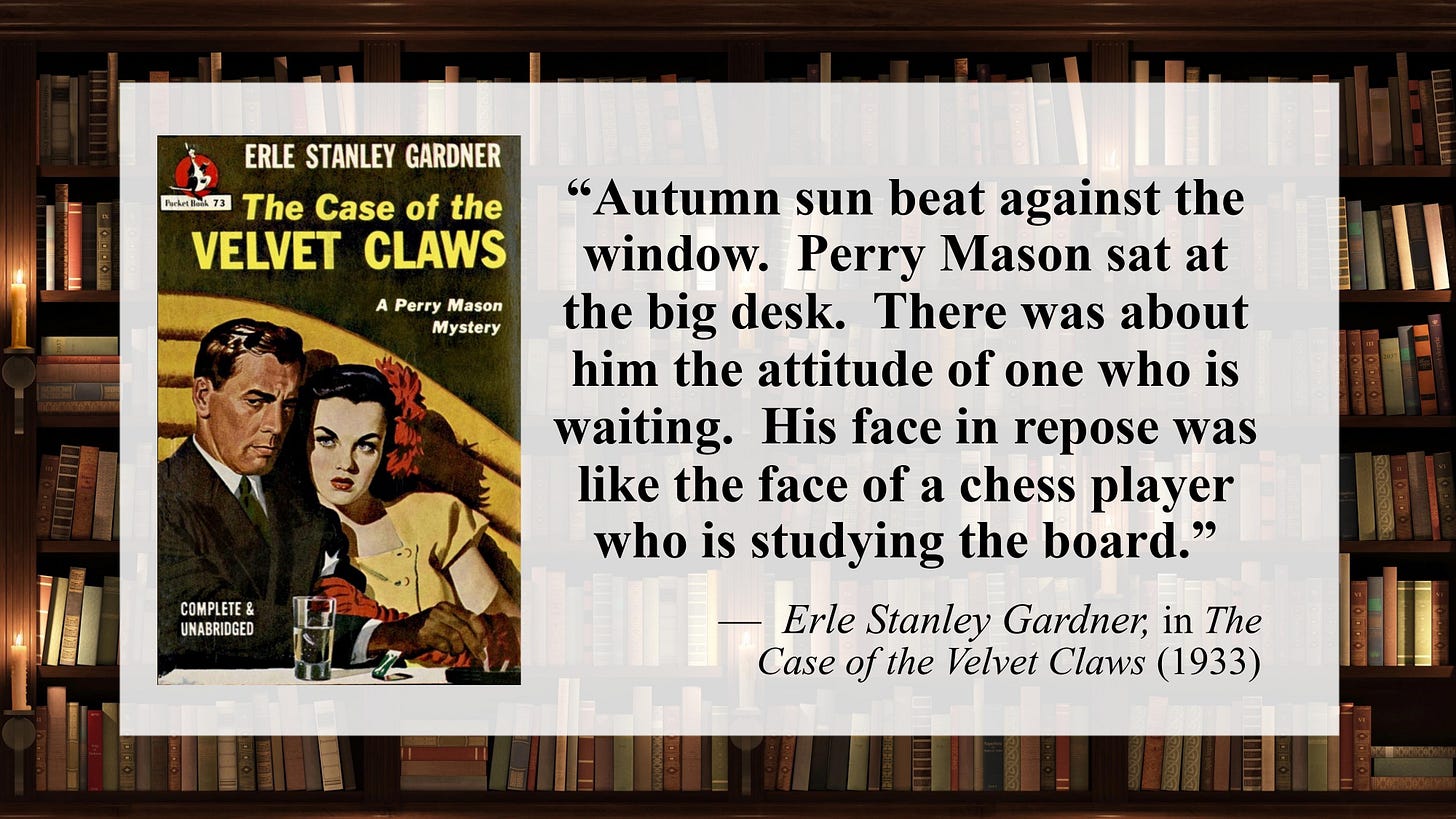Opening Line of the Week
These are the words that introduced criminal defense attorney Perry Mason to the literary world. Over the next several decades, Mason went on to become one of the mystery genre’s most popular characters, featured in 82 novels and 4 short stories.
The opening to the Velvet Claws novel is so well crafted that, after only a few wor…
Keep reading with a 7-day free trial
Subscribe to Dr. Mardy's Substack to keep reading this post and get 7 days of free access to the full post archives.



